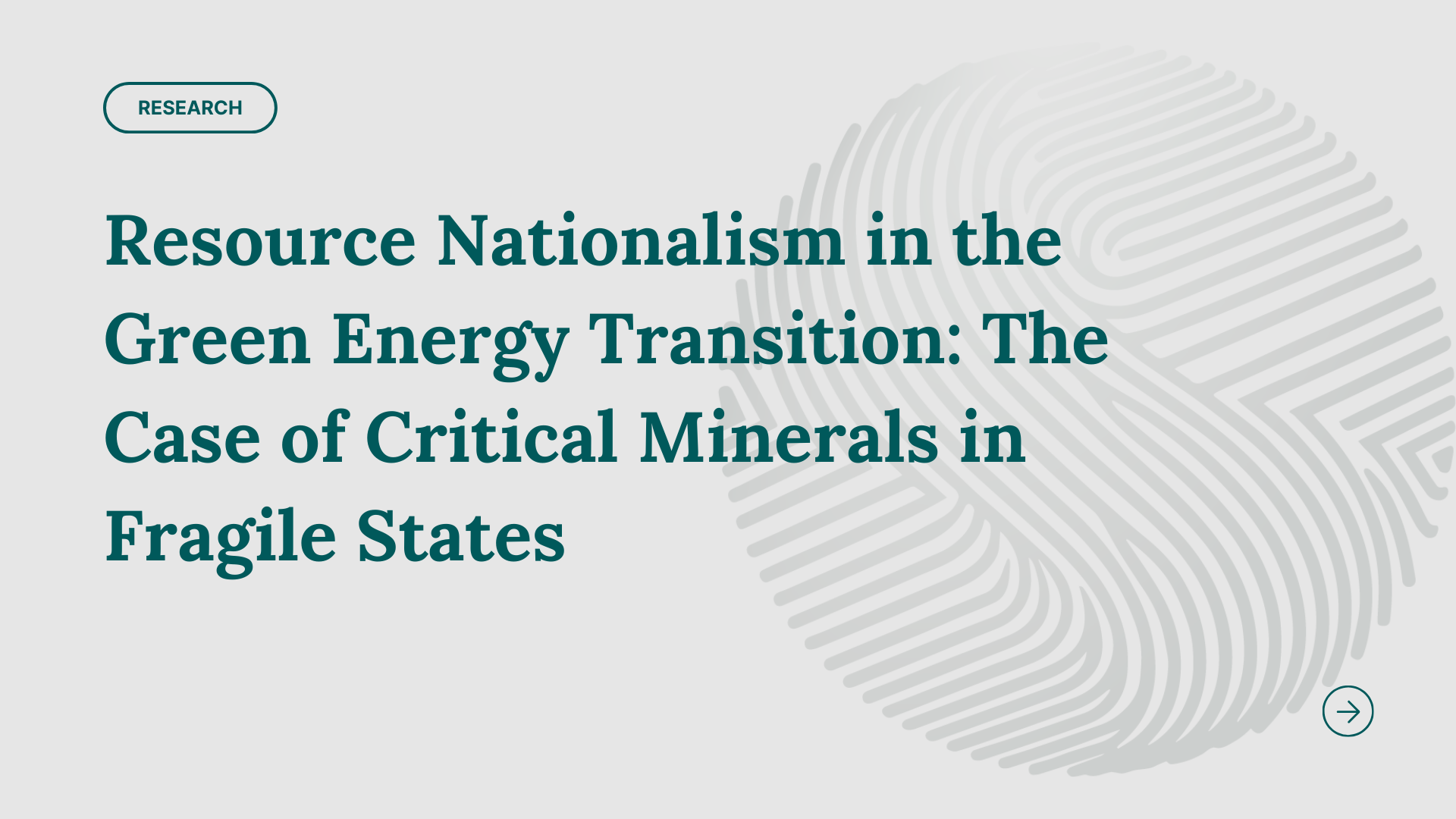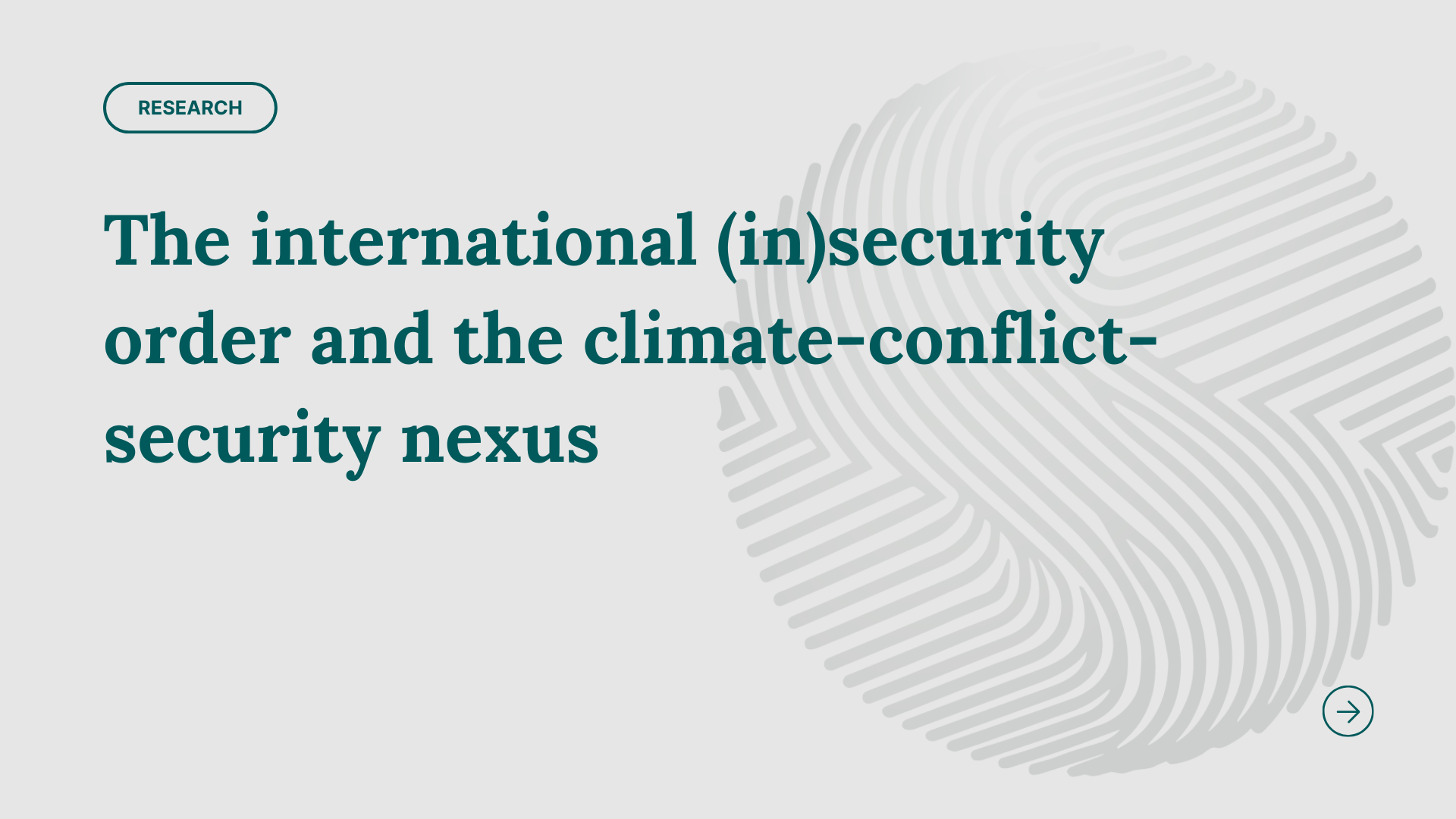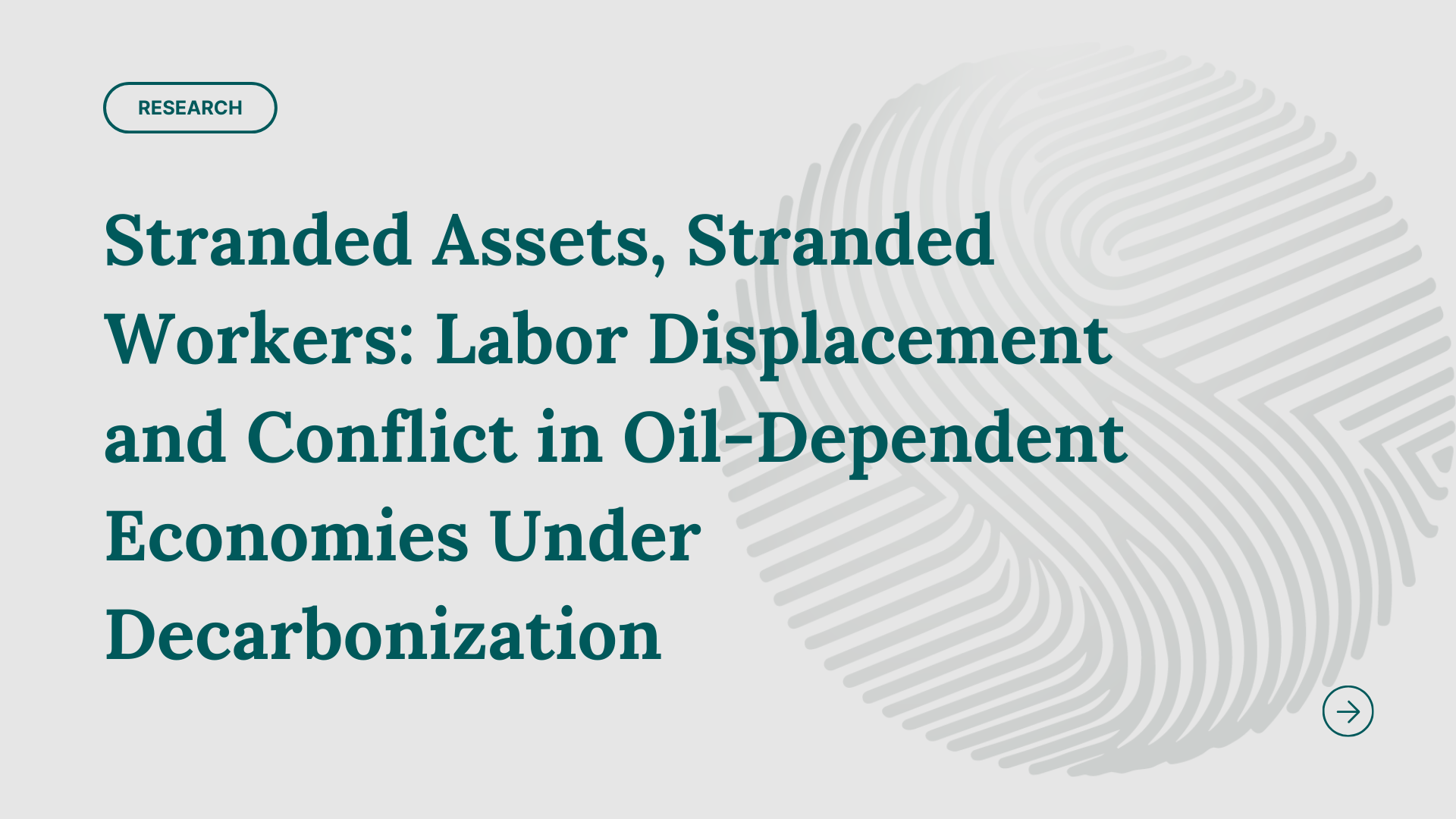Abstract
As global efforts to phase out fossil fuels accelerate, oil-dependent economies face the dual challenge of managing stranded assets and displaced labor forces. This study investigates how declining fossil fuel revenues impact job markets, social stability, and conflict risk in transitioning economies. By examining case studies from Mexico, Angola, and Russia, the research explores the socioeconomic consequences of fossil fuel asset devaluation and workforce contraction. Using a combination of labor market analysis, political risk assessment, and qualitative interviews with affected workers, the study highlights the potential for economic grievances to translate into unrest, populist movements, or increased migration pressures. Findings emphasize the urgent need for proactive labor transition policies to prevent instability in decarbonizing economies.
Author: Brianna Dickey (2025)
This is a working paper by the Stratum Institute for Global Action. Interested in contributing? Contact us!



